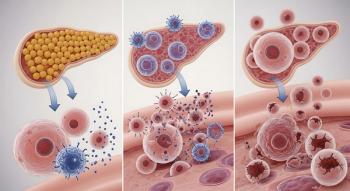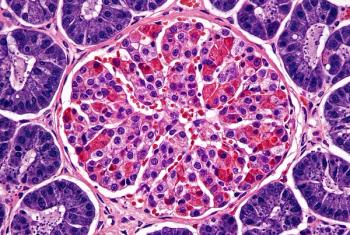
Phase 3 Trial of Vertex’s Islet Cell Therapy for Type 1 Diabetes Under Way
Zimislecel is an allogeneic stem cell-derived islet cell therapy that could eliminate the need for insulin in those who have type 1 diabetes. Regulatory submissions are expected in 2026, and if approved, would be the second cell therapy for type 1 diabetes.
Vertex Pharmaceuticals is
Zimislecel is an investigational allogeneic, or donor, stem cell-derived islet cell therapy that is delivered by an infusion into the liver portal vein. The therapy aims to replace the insulin-producing cells that have been destroyed in people with type 1 diabetes. It is expected that patients will require anti-rejection medication to prevent the islet cells from being rejected.
Vertex expects to complete enrollment and dosing of about 50 patients in 2025, with regulatory submissions to the FDA, the European Medicines Agency and the UK Medicines and Healthcare Products Agency expected in 2026.
The single-arm, open-label
Type 1 diabetes is an autoimmune disease where the immune system destroys insulin-producing beta cells in pancreatic islets. Insulin deficiency results in hyperglycemia and can lead to acute life-threatening complications such as diabetic ketoacidosis. Patients rely on insulin and careful monitoring of blood glucose levels.
About 2 million Americans have type 1 diabetes. Vertex officials estimate that about 125,000 patients have severe type 1 diabetes, and if approved for this indication, zimislecel could be appropriate for approximately 60,000 people with severe type 1 diabetes.
Last year, Vertex
All patients had improved glycemic control and achieved ADA-recommended targets for both HbA1c below 7.0% and time-in-range above 70% on continuous glucose monitoring. Additionally, all 12 patients were free of severe hypoglycemic events during the evaluation period.
The majority of adverse events (AEs) were mild or moderate, and there were no serious adverse events related to treatment.
Breakthrough T1D and the T1D Fund provided grants and funding to ViaCyte and Semma Therapeutics to facilitate early development of the sBC line. By 2022, Vertex had acquired both companies and has fully funded research of zimislecel since then.
Vertex is also pursuing alternative approaches to immunosuppression that could be used with zimislecel, as well as a hypoimmune program using gene-edited stem-cell-derived islets.
In June 2023, the
Newsletter
Get the latest industry news, event updates, and more from Managed healthcare Executive.























